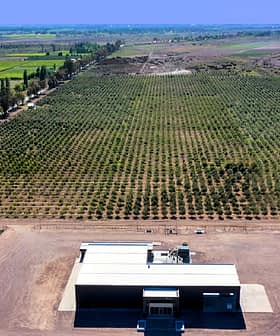The European Commission says the bargaining clout of large-scale distributors is at the root of Spain’s olive oil price plunge — not a market disturbance.

Rejecting the country’s latest bid for the urgent provision of aid for the private storage of olive oil, Agriculture Commissioner Dacian Cioloş said while prices had dropped, they were still beyond the threshold for intervention.
Speaking at a press conference after a meeting of the EU’s Agriculture and Fisheries Council on Monday, Cioloş said it would be wrong to say Spain faced a pricing crisis. In 2009, the last time that the EC applied the private storage measures, prices had been so low they passed the trigger point.
The real problem facing the country’s olive oil sector was the imbalance in negotiating power between its producers and large-scale distributors, not a market disturbance. If the storage conditions were later found to be met, it would be necessary to consider whether the measure would even be effective, he said.
 But Spanish Secretary of State for the Rural Environment and Water, Josep Puxeu, who had raised the issue with Cioloş in Brussels on Monday, has vowed to redouble the push for changes to the EC rules so that olive oil can be bulk stored until prices recover. Spanish officials have been meeting with counterparts in Greece, Italy, France and Portugal to garner support for the measure, in particular for an update to the current price trigger points, which were set in 1998.
But Spanish Secretary of State for the Rural Environment and Water, Josep Puxeu, who had raised the issue with Cioloş in Brussels on Monday, has vowed to redouble the push for changes to the EC rules so that olive oil can be bulk stored until prices recover. Spanish officials have been meeting with counterparts in Greece, Italy, France and Portugal to garner support for the measure, in particular for an update to the current price trigger points, which were set in 1998.
The average price of oil has fallen to below €1.85 ($2.50) per kg in Spain in the past month, but the threshold that automatically activates private storage is €1.77 ($2.39) for extra virgin olive oil, €1.71 ($2.30) for virgin olive oil and €1.52 ($2.05) for lampante oil, prices far removed from the actual costs of the sector.

Spain’s main agrarian organizations are talking of organizing petitions and big protests to highlight the gravity of the problem and add weight to the Spanish Government’s efforts in Brussels. Rafael Civantos of the COAG farmers’ union said bulk storage was their only hope. “We think it is the only thing that can raise prices.”
Spanish producers estimate the industry has suffered losses totaling €2 billion ($2.7 billion) over the last three seasons and olive oil continues to be sold below cost-price in the country’s supermarkets. However, some critics say the olive oil producers got themselves into the situation through over-production.
According to forecasts in the Carbonell Report (PDF) released on Monday, Spain’s olive oil production for the 2010-11 season will total a record 1,375,000 tons. When added to imports and last year’s residual, total supply would be 1,723,000 tons. Despite a small increase in domestic consumption and big rise in exports, that spells a surplus of more than 300,000 tonnes.
 National newspaper El País said the Spanish conglomerate Grupo SOS, the world’s leader in olive oil distribution and sales, had for the first time released the report in Andalusia, which accounts for 80 percent of national olive oil production. It did so amid a good proportion of the sector feeling “wary of SOS’s dominant position, and cooperatives that had tried unsuccessfully to become its shareholders in order to attempt to influence prices,” the paper reported.
National newspaper El País said the Spanish conglomerate Grupo SOS, the world’s leader in olive oil distribution and sales, had for the first time released the report in Andalusia, which accounts for 80 percent of national olive oil production. It did so amid a good proportion of the sector feeling “wary of SOS’s dominant position, and cooperatives that had tried unsuccessfully to become its shareholders in order to attempt to influence prices,” the paper reported.
Grupo SOS president Mariano Pérez Claver was reported as saying that his group was not responsible for recent price falls, which were determined by the market. “But what we should do is reduce production costs and focus on differentiation through quality,” he said.
Clara Aguilera, Councillor for Agriculture and Fishing in the regional government of Andalusia, called for all members of the olive oil industry to work together for a long term solution. While private storage was currently necessary, it was only a stop-gap, she said. “If we don’t look further beyond we won’t address the true problem.”








